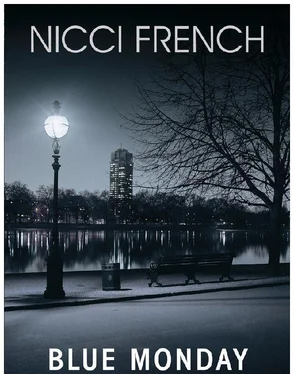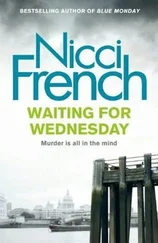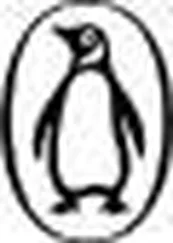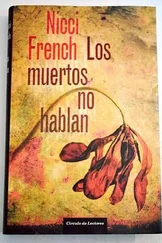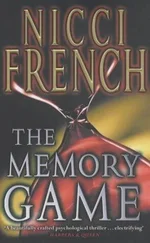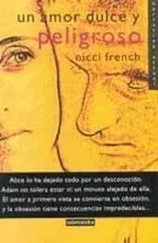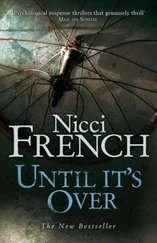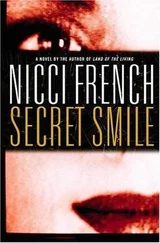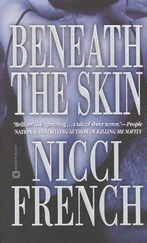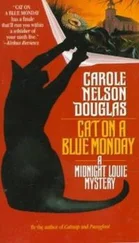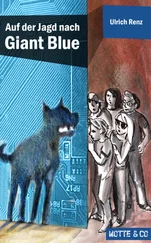Something, a rustle perhaps, made Frieda turn round. Through the railings, she could see a figure, indistinct at first, as it moved along, and then it appeared in the entrance and she recognized it. Her. Their eyes met: Frieda looked at Terry Reeve and Terry Reeve looked at Frieda. There was something in her gaze, an intensity that Frieda had never seen before. Frieda took a step forward but Terry turned and moved away; she disappeared out of sight. Frieda ran back the way she had come but by the time she had got out of the cemetery there was no sign of Terry. She looked around desperately. She ran back down the avenue and reached the hut. An old woman was sitting behind an improvised desk. There was a Thermos flask in front of her and a notice saying ‘Friends of Chesney Hall Cemetery’. Probably she had a loved-one lying out there somewhere, a husband or child. Perhaps this was where she felt at home, among family. Frieda took out her purse and rummaged through it.
‘Have you got a phone?’ she said.
‘Well, I’m not -’ the woman began.
Frieda found the card she was looking for. ‘I need to make a call,’ she said. ‘It’s to the police.’
After she had gabbled out her message to Karlsson, Frieda turned back to the old woman.
‘I need to find a family grave. Can I do that?’
‘We have plans of the cemetery,’ the woman answered. ‘Almost all of the graves are listed on it. What’s the name?’
‘Reeve. R-E-E-V-E.’
The woman stood up and moved over to a filing cabinet in the corner. She unlocked it and brought out a thick ledger, filled out by hand in black ink that was faded, and started leafing through it with slow deliberation, licking her forefinger from time to time.
‘We have three Reeves listed,’ she said at last. ‘Theobald Reeve, who died in 1927, his wife Ellen Reeve, 1936, and a Sarah Reeve, 1953.’
‘Where are they buried?’
The woman rustled in a drawer and brought out a printed map of the cemetery.
‘Here,’ she said, placing her finger on the point. ‘They’re all buried close to each other. If you go up the central path and take the third path on your -’
But Frieda was gone, snatching the piece of paper from her hand and running. The old woman watched her, and then she took her place once more at her desk, unscrewing the lid of her Thermos flask, waiting for the bereaved to come and pay their respects. Christmas was always a busy time.
Frieda tore up the central path and took the path on the right that was narrow but well-worn. On either side were gravestones, some quite new, made of white marble with clear black words etched into them. Others were older, grown over with lichen and ivy, or had tipped backwards. It was hard to make out the names of some of the dead who lay there and Frieda had to run her fingers over the ridges of the letters to make them out. The Philpotts, the Bells, the Farmers, the Thackerays; those who had died old and those who hadn’t made it out of their teens; those who still had flowers placed there and those long-forgotten.
She moved as quickly as she could among the gravestones, stooping at each one and standing up again, squinting in the dim light. The Lovatts, the Gorans, the Booths. Her eyes burned with tiredness and her chest ached with hope. A blackbird looked at her from a bare thorn bush and in the distance she heard the rumble of cars. Fairley, Fairbrother, Walker, Hayle. And then she stopped and heard the blood pounding in her ears. Reeve. Here was a Reeve – a small, crumbling headstone, tipped slightly to one side. She had found it.
But then, with a crushing sense of failure, she understood that she had found nothing at all. For how could a child be hidden here, among these puny graves that stretched all round her? With a lurch of horror she looked closer at them for freshly turned earth where a body could have been buried, but they were thickly overgrown with weeds. Nobody could be hidden here. She sank to her knees beside Theobald Reeve’s inscription, feeling sick with a sense of defeat. Matthew wasn’t here after all. It had just been a delusion, a last spasm of hope.
She didn’t know how long she knelt like that in the bitter cold, knowing that she had lost. But at last she raised her eyes and started to scramble to her feet, and as she did so she saw it – a high stone mausoleum, almost out of sight behind a tangle of brambles and nettles. She ran towards it, feeling the thorns tear at her. Her feet sank into the slushy mud and the wind whipped her hair round her face so that she could barely see. But she could see enough to know that someone had been there recently. There was a path of sorts where the nettles and brambles had been flattened. She reached the entrance and saw that it was blocked with a heavy stone doorway, but from the ruts in the mud it was obvious that someone had pulled it aside not long ago.
‘Matthew,’ she shouted, at the blank, mouldering stone. ‘Wait! Hold on! We’re here. Wait.’
Then she started tearing at the stone with her bare fingers, trying to get a purchase, trying to hear some sound that would tell her he was there, and that he lived.
The stone door gave slightly. A chink appeared. She strained at it. From over the hill she heard cars and she saw headlights. Then there were voices and there were people and they were running towards her. She saw Karlsson. She saw the expression on his face and she wondered if she looked like that as well.
And then they were upon her – an army of officers who could pull the stone back, who could shine their torches into the dank blackness, who could crawl inside.
Frieda stood back. A terrible calm descended on her. She waited.
He couldn’t hear his heart any more. That was all right. It had hurt too much when it was beating hard. The Tin Man was wrong. And he couldn’t make his breath go in and out properly. It caught in small shudders and didn’t fill him up. The fire was gone, and the ice was gone too, and even the hard ground wasn’t hard now, because his body was just a feather trembling on its surface and soon it would be lifted up and floated away.
Oh, no. Please. No. He didn’t want the tearing sounds and he didn’t want the white light shredding his eyes. He didn’t want the staring faces and the clawing hands and the gabble of voices and the jolting movements. He was too tired for more of the story; he had thought the story was over at last.
Then he saw the dancer, the woman with snowflakes in her hair. She wasn’t shouting or running like the others. She stood quite still on the other side of the world with gravestones all round her and she gazed at him and her face was better than smiling. He had saved her and now she had saved him. She bent over him and her lips touched his cheek. The evil spell was broken.
Frieda stood near the bed, watching. The little figure was still curled in the position they had found him. Then he had been in a state of semi-undress – for in his delirium of death, the boy had ripped off the clothes he had been wearing, the checked shirt a replica of the shirts both twins favoured – and had lain in near-nakedness on the cold earth of the mausoleum. Now he was on a warm-water mattress. He was covered with layers of light cloth and there were monitors attached to his heart. His face, which in the photographs she had seen of him was round and ruddy and full of merriment, was so white it was almost green. His freckles stood out like rusted pennies. The lips were bloodless. One cheek was bruised and puffy. His hands were bandaged for he had ripped his fingers tearing at the stone walls. His hair had been crudely dyed black, with a stripe of red showing at the parting. Only the monitors showed he wasn’t dead.
Detective Constable Munster sat in the corner of the room. He was a young man with dark hair and dark eyes and he’d been on the team looking for Matthew since the first day. He was nearly as pale as the boy, and still, as though he were carved in stone. He was waiting for the boy to return to consciousness. Matthew’s eyes fluttered and closed again. His lashes were long and red; his eyelids were translucent. Karlsson had asked Frieda to stay as well, until the child psychiatrist arrived. Even so, she felt in the way, excluded from the process, the rapid footsteps, the rattle of trolleys, doctors and nurses murmuring to each other. Worse, she understood the jargon that was being used, the intravenous warm saline, the danger of hypovolaemic shock. They were trying to raise his core temperature and she was just a bystander.
Читать дальше
